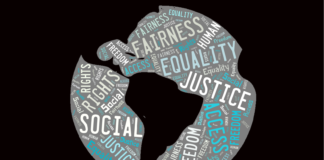Tag: philosophy of psychology
Psychology, Personhood, and the Crisis of Neoliberalism: Jeff Sugarman on Theoretical...
Tim Beck interviews Jeff Sugarman on the psychology of personhood, the influence of neoliberalism on mental health, and the need for a more philosophically informed psychology.
Psychiatry and the Selves We Might Become: An Interview with Sociologist...
MIA’s Ayurdhi Dhar interviews the well-known sociologist of medicine, Nikolas Rose, about the role psychiatry plays in shaping how we manage ourselves and our world.
First-Person Accounts of Madness and Global Mental Health: An Interview with...
Dr. Gail Hornstein, author of Agnes’s Jacket: A Psychologist’s Search for the Meanings of Madness, discusses the importance of personal narratives and service-user activism in the context of the global mental health movement.
What Does Social Justice Really Mean for Psychologists?
Without clarity and consensus around what social justice means, psychologists risk perpetuating injustices that undermine their stated mission.
Researchers Identify 27 Categories of Emotion
A new study finds that emotions may be represented by 27 categories, with each category relating to others in a more complex and continuous fashion than previously understood.
Researchers Question the “Adequacy and Legitimacy” of ADHD Diagnosis
A new article, just published online in the journal Emotional and Behavioural Difficulties, presents research suggesting that the diagnosis of ADHD is philosophically inadequate.
“Is it Time to Abandon the Medical Construct of Being Normal”
Jonathan Sholl, a professor of medical philosophy in Denmark, writes for Aeon: "In any parlance, the specific meaning of ‘normal’ has important consequences, especially if...
“The Dangerous Ideal of Mental Health”
"Today... mental health is increasingly understood as a positive state: as something to aspire to. Led by the new academic field of positive psychology...
In Praise of Patience as a Prescription for Trauma
For Aeon, Samira Thomas writes that while resilience is attracting a lot of attention from psychology, patience in an underexplored and undervalued virtue in...
“The Psychology of Time and the Paradox of How Impulsivity and...
From brainpickings, Maria Popova explores “how our subjective experience of time’s passage shapes everything from our emotional memory to our sense of self.” “What...
“Can Psychology Be an Empirical Science?”
Neuroskeptic covers a provocative paper from psychologist Jan Smedslund which argues that psychology “cannot be an empirical science.” “Psychological findings are in principle historical, and...
Psychiatry After Postmodernism
“If language is inherently unstable, then how can we hope to diagnose illness accurately?” asks psychiatrist Mark Salter in an article for iai news. “Naming things, abstract or concrete, is a form of categorization,” but, he adds, “it is important to remember that our categories say more about the categorizer than the categorized.”

















